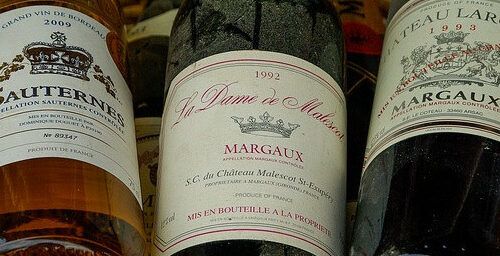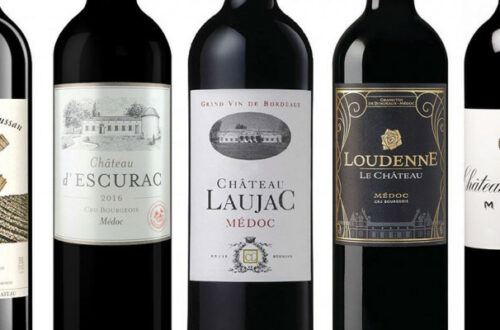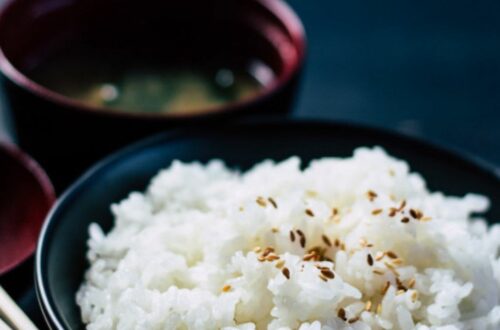
What made Bordeaux successful in the middle ages?
Bordeaux is now one of six most important regions in France and some may argue, it is the most important wine region in France. My WSET teacher would tell me to start by studying Bordeaux if I wanted to understand wine better.
I also think, that by studying the history of something, you understand it better too. And wine in Bordeaux, or should I say, Burdigala, comes back a long way. There was wine in Bordeaux in the middle ages, although it was not as famous as it is today…
So, what made Bordeaux successful in the middle ages?
SUMMARY : This post explains, in chronological order, the context of Bordeaux in the middle ages : their wines were far behind those from La Rochelle, who was thriving. In this post, you will understand how Bordeaux used both wars of Guyenne to reverse the situation and how it even came to put in place “the privilège of Bordeaux”, where ONLY Bordeaux could sell its wines. Why is there no more wines in the Haut-Pays ? Controversly, how did Bergerac, Gaillac and Cahors survive?
Bordeaux’s success in the middle ages: the context
Let’s start by making some royal reminders: Eleanor of Aquitaine was the eldest daughter of the Duke of Aquitaine: William X. She became Duchess at the age of 14 after the death of her brother in 1130 and her father seven years later. On July 25, 1137, she married the future Louis VII, who became, a fortiori, the Duke of Aquitaine.
However, let us not forget that the title comes from her so when their marriage is dissolved in 1152, it is she who keeps the title. She remarried the same year to Henri Plantagenent, making him in turn Duke of Aquitaine. The latter became King of England two years later. Thus, Aquitaine, and therefore Bordeaux, was linked to the English kingdom.
They had eight children, including two kings whose names had survived the ages: Richard the Lionheart and John Lackland.
Let’s get back to what interests us: BORDEAUX! It should be noted that in the Middle Ages, Bordeaux was not only in competition with La Rochelle on the markets of Flanders and Great Britain, but it was also late. In the edit of 1199 listing the wine regions of France, at least the regions from which the wine consumed in England comes, Bordeaux does not appear there. (unbelievable, now that we know the Influence of Bordeaux today, right?
ANECDOTE: According to Roger Dion in his book Histoire de la Vigne et du Vin, Bordeaux was even accused, in 1241, of having had nothing but hatred for La Rochelle: “semper habent Rupellam in odio”.
from idealwine.net
However, that same year, the bordelais asked Queen Eleanor to abolish certain customs relating to the vine. The people of Bordeaux were certainly full of hope! This request was accepted on 1 July. Moreover, Saint-Emilion will be the first wine exported.
To sum-up, Bordeaux is behind La Rochelle and dares to address the English kingdom: why such impertinence? Having faith in oneself is good, but at the time, such a request could also have had serious consequences.
La Rochelle may be ahead of the market, but Bordeaux has undeniable advantages over the latter. La Rochelle has no bishop and its central parish is not 100 years old. And Richard the Lionheart stayed in a Bordeaux palace.
ANECDOTE: How did Richard get accepted by the people of Bordeaux? “by taking the manners of a national sovereign… He sang in Limousin and lived in the country” according to Roger Dion. He also favoured the trade of the bourgeoisie.
Following this request, the first acts of Jean-Sans-Terre were to supply Bordeaux wine to the English court. The inhabitants of La Rochelle (the Poitevins) see this with a bad eye (necessarily!). But let them not worry, the wines of Anjou remain the great favorites of the English king and the wine of La Rochelle remains privileged compared to that of Bordeaux.
ANECDOTE: Roger Dion proves it: “Have the Earl of Salisbury give ten barrels of good Anjou wine” wrote the king in 1204.
Who benefits from the crime?
It is said that the misfortune of some makes the happiness of others, Bordeaux knew how to take advantage of the wars waged against Guyenne in the thirteenth century.
from largest.org
In 1206, at the end of the FIRST War, where Bordeaux played an undeniable role, the jurats of the latter is named in a letter from the king: “Rex majori et juratis… of Burdegala”. The wines, because the quality was there too, appeared more and more often on the royal table. In 1215, Jean-Sans-Terre bought 120 barrels of Bordeaux wine for his personal use.
In 1224, during the SECOND war led by the King of France Louis VIII, on July 3 to be exact, the Rochelais surrendered. Indeed, this allowed them to sufficiently extend (i.e. without requiring the British market) their export to the countries of the North Sea and the Baltic.
Who benefits from this crime? Bordeaux of course which brings everything to the English kingdom. In 1222, Bordeaux asked for permission to appoint a mayor (mayors until then were royal officials). Following a few round trips of letters, they won their case on June 13, 1235.
Indeed, a first letter, which had been sent to them on July 10, 1224 granted them this privilege “quamdiu nobis placuerit” (i.e. “the time we like”). Bordeaux negotiated for this to turn into an “imperpetuum” in perpetuity.
Bordeaux took the opportunity to take the British market from the outset. They quickly became the major suppliers of the royal castles of England.
This resumption of exports has transformed the port of Bordeaux, through the influx of ships.
from martinez-fleurot.com
ANECDOTE: In a letter in 1670, the Marquis de Seignelay, son of Colbert that he addressed to his father: “It is a very pleasant thing to see that the port of Bordeaux during the fair. The city paroist in the sinking and the port, which is in crescent and which is called because of this the prot of the Moon, is adorned with 7 to 800 ships, both François and estrangers who come to load the wines, which make all the fortune of the country” tells us Roger Dion in his work Histoire de La Vigne et du Vin.
This change applies not only to Bordeaux but also to the Dordogne with Bergerac, Cahors and Gaillac whose wines also appear on the royal tables. Gaillac is also one of the oldest centres of viticulture. Its climate allows it to harvest in greater quantities and regular.
The privilege of Bordeaux under the English kingdom…
The wine fleet left England in the first days of autumn in order to arrive in Gironde in the first half of October. They then spent nearly 8 weeks there (it was also at this time that the Bordeaux fair was held) and then left for England with the wines of the year just put in barrels.
The big problem in this trade was the lack of competition from Bordeaux. The latter even took the initiative to prohibit any non-bourgeois person from selling its wines before the bougeois had finished and to prohibit Agen from lowering its wines for export before 11 November.
The “privilege of Bordeaux” had begun and lasted for more than five centuries.
However, one suspects that if this situation lasted for so long, it was because there was the support of the English kingdom.
Indeed, during the first war of Guyenne, the cities of Cahors and Agen had brought help to the French kingdom during the reconquest of the country by the King of France.
Edward III, King of England, forbade them, in a mandate of 1373, to deliver their wine before Christmas. This allowed Bordeaux, in case of poor harvest, wines to replace theirs. Bordeaux also passed through its cities for its supply of wheat, so King Henry IV of England imposed that a barrel of wheat be delivered to Bordeaux every two barrels of wine.
… and under the French kingdom
However, between the XII and the seventeenth century, Bordeaux was reconquered by the French Kingdom. Why would these prohibitions not have been lifted by King Charles VII in October 1453 when he passed the gates of Bordeaux?
As a reminder, this marked the beginning of the Hundred Years War.
from Fonds
These prohibitions were initially suspended, from October 9 of the same year.
With the war and the lifting of these bans, Bordeaux withered away so quickly that the French kingdom came to fear the consequences of its reconquest. As early as April 11, they again reinstated some of these prohibitions, and by 1461, Bordeaux had regained all its rights (and the other municipalities all their prohibitions).
Moreover, in order to prevent the wines of the Haut Pays from being confused with those of Bordeaux, they had the obligation to unload them in a place outside the city: the Faubourg des Chartreux.
All other municipalities were subject to these prohibitions? No! For a village populated by irreducible Bergeracois still resisted the invader. Indeed, only Bergerac was exempt from these prohibitions because, by the route of the river, they did not pass through Bordeaux. Its geographical location was not its only advantage.
Indeed, at the beginning of the fifteenth century, it was the only city that England owned. And even when he returned to the kingdom of France, this city was never subject to the same prohibitions.
This “privilege of Bordeaux” reached its climax with the royal edict of 1776 which required all foreign wines in Bordeaux not to be delivered before the Christmas holidays. These same wines had to leave Bordeaux before September 8 of the following year and finally, they were stored in less resistant barrels and less advantageous volume.
Geographical impact of the “privilege of Bordeaux”
The effects of this privilege are still present to this day. The production upstream of Saint-Macaire disappeared completely while scientifically, its terroir is more advantageous. The vine gives way to fruit trees in other regions.
Bergerac, Cahors and Gaillac, however, continued in the eighteenth century to support their reputation of the Middle Ages. We have seen the advantage of Bergerac. Cahors was spoiled by nature, which gave its winemakers effective means to defend themselves against Bordeaux.
The geographical circumstances and historical circumstances created by the Hundred Years War allowed Bordeaux to establish this “privilege” and maintain it for so long. Another thing that can be admired to them is that they had a very fair sense of the limit not to be exceeded.
Another influence for Bordeaux will be that of the Dutch, but the story will be for another post!
What do you think? Do you have any other anecdotes to add? Tell me in the comments!














4 Comments
Jessie
Thank you so much for this history lesson. To be honest I didn’t realize that so much went into Bordeaux success in the middle ages. I just thought a lot of it was money and being able to make good wine hahah. It’s interesting to see how it flipped over to England and france back and forth, yet that made it even more successful due to its geographic location. Thank you for giving that short history lesson!
Mademoiselle
Thank you for stopping by and loved that you learned something. I find it absolutely fascinating the power and history has on wine. Wine doesn’t come from the best terroirs but it is the fruit of political actions
Toplink
What a great history of the competition and war history and how it enabled wines to gain recognition. Apparently, politics throughout history had an enormous impact upon the wines that are valued today. Bordeaux is a wine that has survived many years of history and has developed a reputation that has been achieved only through great amounts of time and perseverance.
Mademoiselle
Exactly. Although the wine has to be of good quality, men’s impact explains a lot about the layout of the different vineyards in France.